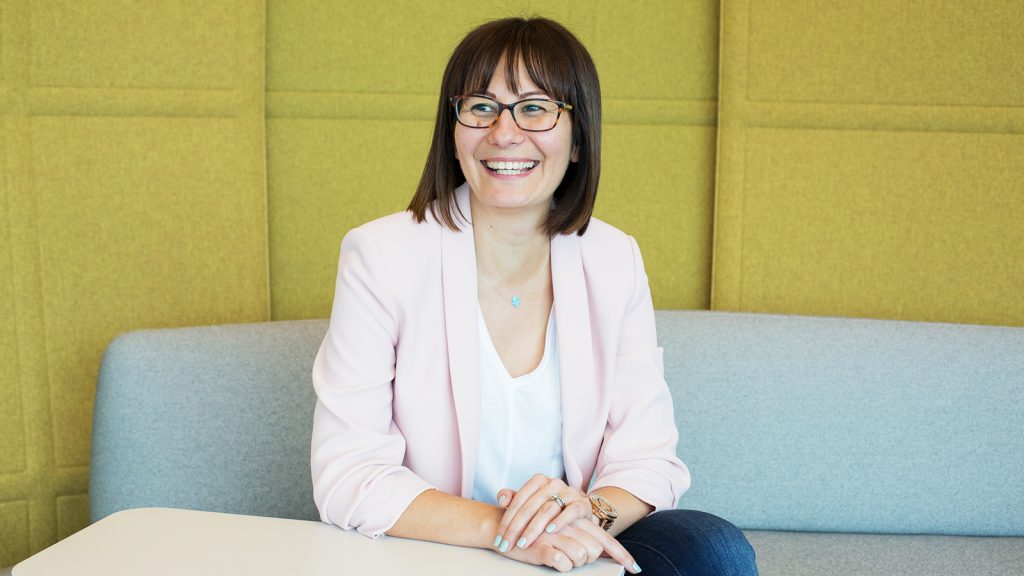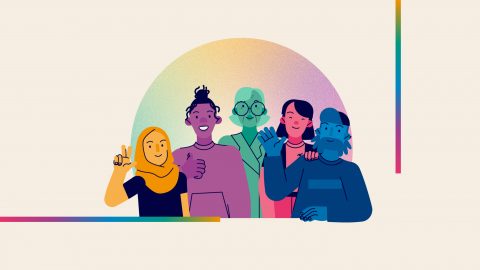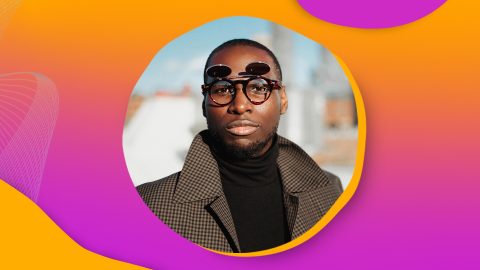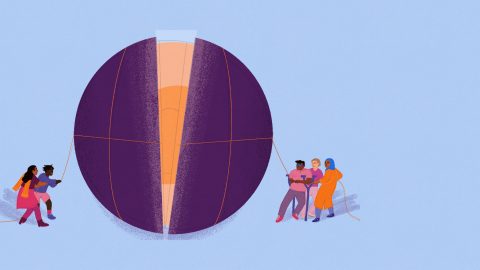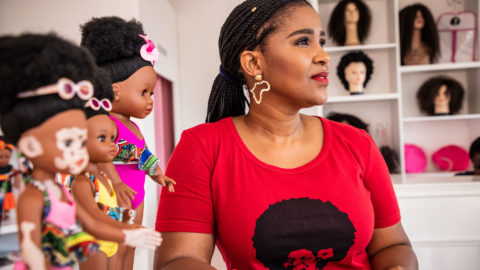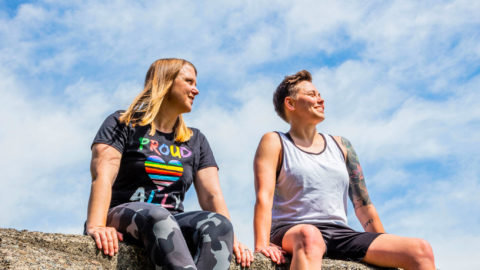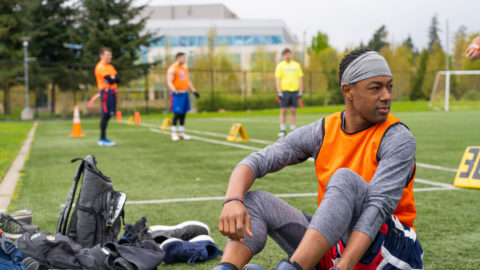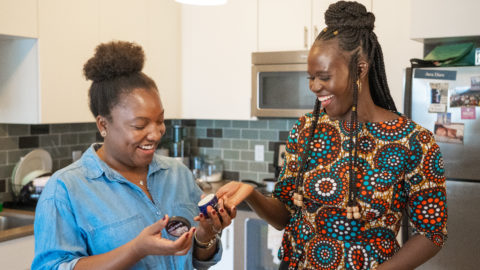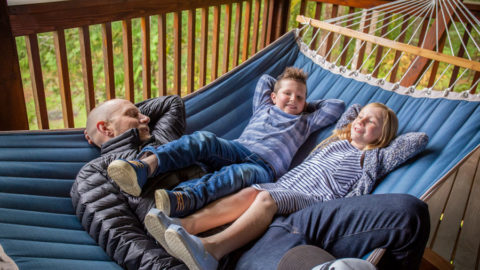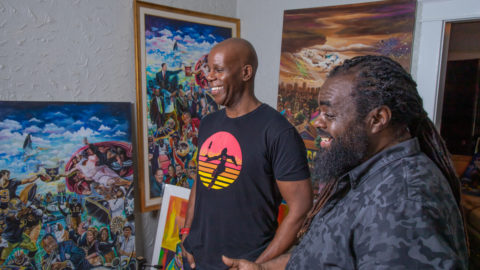Deep learning: to become a leader in AI, Ozge Yeloglu first had to figure out how to believe in herself
How one employee had to combat her negative self-talk to get the exciting career she'd always dreamed of
Editor’s note: We sat down with data scientist and artificial intelligence evangelist Ozge Yeloglu to talk about her love of machine learning and how she battles perfectionism. This story is told in her own words.
It was 1999. On my first day of college classes at Ege University in Turkey, I sat down in the computer lab and was instructed to insert the floppy disk. I stared blankly at the computer, because I had no idea what a floppy disk was or how to put it in correctly. I quickly looked over at the kids next to me and watched what they did.
It might seem odd that I was a computer science major when I did not know how to use a floppy disk. But from a young age, I had an interest in computers even though I didn’t own one. My mom wouldn’t buy one for our home because she thought that computers were just for games, and games would distract me from school work.
She and my dad were not educated beyond junior high school. However, they valued education extremely. Knowingly or unknowingly, my mom pushed me to be the top student in the class because she was never given the chance herself. There were a lot of pressures and expectations on me. But while I was growing up, things came relatively easily. I was a top student. Consequently, I became a bit of a perfectionist. College came around, and I had to choose a major.
I liked math, and the university degree options for math were either medicine or engineering. There weren’t many options in Turkey at the time. I didn’t want to be a doctor, so the question was which type of engineering. Computer engineering was becoming popular in those days, so I decided to try computer science.
Everything about who I was up to that point changed. I had to learn how to love taking risks and how to stop striving for perfection. But it didn’t come easily or quickly. That moment of feeling humiliated on my first day in the computer lab marked the beginning of me struggling with my studies and feeling like I was faking my way through my studies and career.
But I couldn’t quit; I wouldn’t change my major. I had something to prove to myself.
Just because you might come from less privilege than others or have a steeper learning curve, . . . those barriers don’t have to disqualify you from a killer career doing what you love.
Luckily, in my last year of college, I was introduced to neural networks—what we call deep learning today.
Think about the human brain, which learns by the neurons connecting and communicating with each other. Neural networks are trying to replicate that behavior by creating complicated layers of functions between each point.
For instance, when babies see enough examples of dogs and cats, they can differentiate between the two animals by recognizing the shapes. A similar thing happens with neural networks. When we present enough examples of dog and cat pictures to a neural network, the computer system is able to categorize each picture correctly by creating and optimizing the functions in between layers of neurons.
Discovering neural networks completely captured my interest and passion and introduced me to artificial intelligence (AI), which combined my love of human biology (as a teenager I dreamed about becoming a genetic engineer) with computer science. I applied to graduate school and ended up in Canada at Dalhousie University for both my master’s and PhD programs studying neural networks. While there, I served as president of the Women in Technology Society and received Google’s Anita Borg scholarship.
Being consumed by my work was awesome, but I still had a lingering thought that I wasn’t very good at what I was doing. I got 100 percent on my undergraduate honor’s thesis—there it was, evidence of my accomplishments—but I still felt the need to downplay it.
In 2013, while I was working on my PhD, a few cohorts and I started a company called topLog, which focused on predictive data analysis based on unstructured log data. You have to do so many things at once at the early stages of a startup; it was organized chaos. I absolutely loved being able to touch so many different aspects of the business as a highly technical person. The company grew for three years. But eventually it was just not the billion-dollar unicorn we were hoping for, and we shut it down.
I began to look around for the next thing, and my mentor at the time was a Microsoft employee—she still is. She heard about Microsoft Canada hiring their first data scientist and encouraged me to apply. But I was nervous. I didn’t want to be only a data scientist; I wanted to deal with people hands on, in real-world ways like I had at my own company. But I was curious about Microsoft because I had been watching and loving where the company was going. So, I applied.
After discussing the role in depth, it turned out that I would be able to shape the work and my impact. Being empowered like that really excited me, so I decided to go for it.
I focused on building analytics solutions for some of the biggest financial services companies in Canada. After we hired more data scientists, I worked with them to build data analytics solutions to increase customer satisfaction, revenue, and efficiency and to optimize their operations to stay ahead of the curve in today’s competitive market.
‘Do it badly!’
It seemed like each time I was getting ready to take a risk and put myself out there, be it studying computers with no computer background or defending my thesis, my old feelings of inadequacy would rear up. I’m not sure where it comes from, but I was constantly judging my work as not worth anything, and I couldn’t figure out why my supervisors or managers were keeping me around. I was miserable but kept it to myself.
From day one at Microsoft, I looked around at my team and thought, “These people are brilliant! What am I doing here?”
I had this sense that I didn’t belong, didn’t naturally deserve to be where I was. And yet, striving to deserve it by overachieving never appeased those feelings.
Eventually the feelings of fraud got so bad that I just had to tell someone. I was chatting with one of my colleagues, and when I told him my feelings, he said, “Oh my god! Are you kidding me? I look at you and think ‘she’s brilliant. She worked in machine learning at a PhD level. How am I supposed to compete?'”
His answer shocked me. Just to know that other people are feeling the same way did a lot to ease my anxieties and let me focus on the important work I had in front of me.
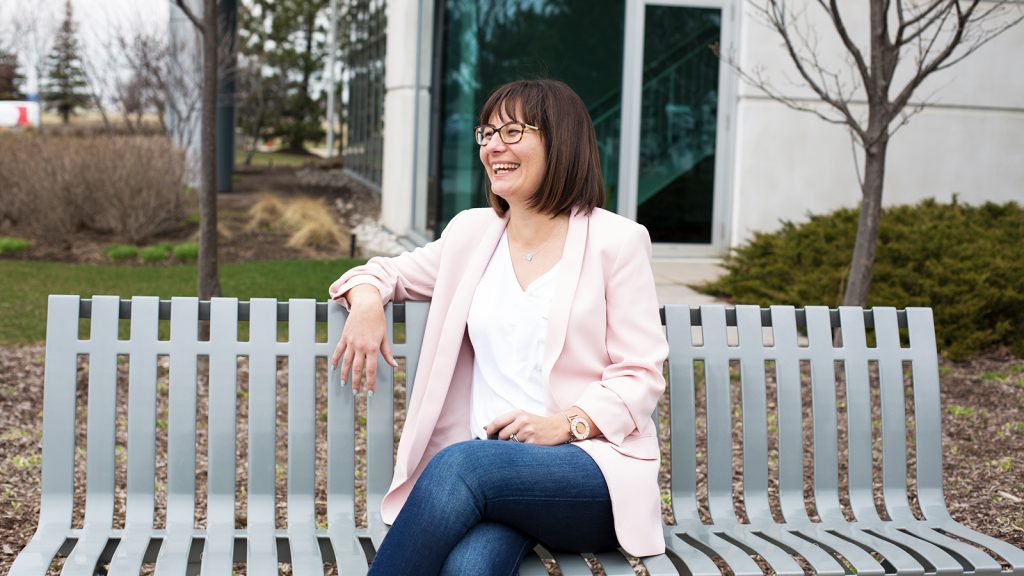
I had to learn the business side of things. A data scientist with generic data science knowledge is not that useful if one doesn’t have the business context. I was working with our sales teams, getting to know our customers and their needs. It was great to be working with people so closely, like I’d done as CEO of my own company.
Two years into the role, I started getting curious about doing more. I told my manager that if there was an opportunity to grow the team, I’d love to be a manager. The position didn’t exist at the time, but in six months, they asked if I wanted to apply for a new role they were creating. I applied, and I’ve been managing a team of 11 people for the past six months.
I had so much to learn because I’d never been a manager at Microsoft before. But I had to push myself out of my comfort zone if I wanted to do big things. My time as a CEO taught me that adaptability is important, as is being able to learn many things at once. That helps at Microsoft, too—being comfortable with things I don’t know and having the drive to learn and keep growing.
Now I’m managing 11 data architects and data scientists while trying to be the AI voice of our company in Canada. I work with our business and marketing teams to plan and actively engage at our customer and public events, help target the right audience for the events, and bring new programs to our business teams, especially AI and startup programs.
I get to do applied AI, so while we’re not solving problems on an algorithmic AI level, we get to work on changing the AI landscape as it pertains to enterprise customers. This includes not only cultural changes for their businesses, but also the technical changes, especially at a data level, such as how to make the data available to everyone in the company so that we can build these AI solutions with them.
I also do many volunteer activities, such as mentoring AI startups, speaking at conferences and customer events, and being active on social media about AI, specifically on the hashtags #AI4good and #AI4earth.
This role is much the same as I experienced in my CEO days—organized chaos. I’m still able to do many things in my current role while staying as technical as I can. I manage a team, work on growing my team members in their careers, work with our customers at the executive level, hear and help them solve their problems, speak at conferences, work with our internal teams on internal and external AI education, and, of course, make sure that my team is creating business outcomes for our company.
But that doesn’t mean my feelings of inadequacy have been totally eradicated. I’m still learning how to win the war over my negative self-talk. I talk it out in therapy, and I also put sticky notes all around me. I have this sticker at home that says, “Do it badly!” and also “Forgive yourself!” which I heard from a TED Talk. Start working on things sooner rather than later instead of first worrying about how big and terrifying a job is, obsessing, and then putting yourself in a hole that you might not be able to get out of.
Instead, I know the best thing to do is jump in, try to figure it out as early as you can, and most likely make mistakes on the way. However, you acknowledge that you made a mistake, learn from it, and keep moving. Learn. Move on. Repeat.
Now I mentor young girls with the hopes that my story will inspire them. I tell them, just because you might come from less privilege than others or have a steeper learning curve or might have no clue where to insert the floppy disk, those barriers don’t have to disqualify you from a killer career doing what you love.

